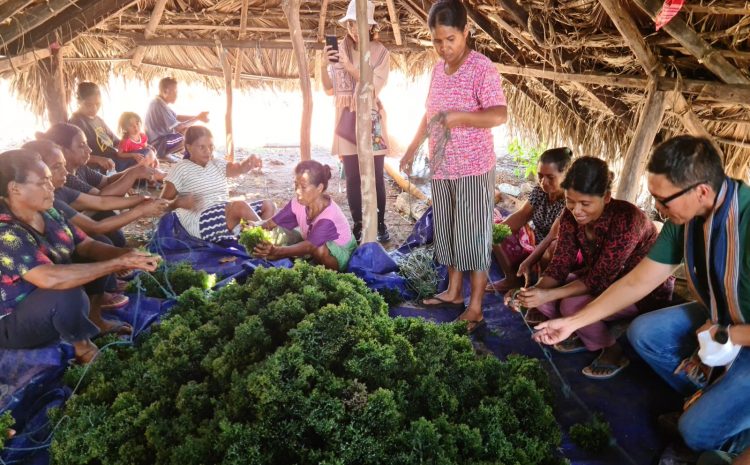Sustainable Seaweed Farming

Indonesia is the largest archipelagic country in the world with 17,504 islands and sea area of 5.8 million km². The Indonesian Sea has about 8,500 species of fish, 555 species of seaweed and 950 E. cottonii and ranks second for its Gracilaria sp., after China (FAO, 2015).
Since 2017, Yayasan Tahija has been supporting environmentally friendly, responsible, and sustainable seaweed farming, as well as applying local wisdom in traditional fishing activities and developing other economic potentials initiated by Yayasan Konservasi Alam Nusantara (YKAN).
Oelolot and Mbueain Villages in Rote Regency are the two pilot project villages that carry out community assistance programs through SIGAP (Citizens’ Inspirational Action for Change). In August 2021, the two pilot project villages succeeded in obtaining the Best Management Practice (BMP) certification for sustainable seaweed farming.
In 2021, extreme weather and Hurricane Seroja damaged the seaweed seed demonstration plot. However, after re-seeding the remaining seaweed, the propagated seaweed seeds could be distributed to all group members and other villages. In June 2022, Mr. Trihadi Saptoadi, Chairman of the Executive Board of the Tahija Foundation visited the two pilot villages in Oelolot and Mbueain as well as replicate villages of: (i) Pukuafu and Lifuleo located in Rote Ndao District; and (ii) Sulamu and Tesabela villages located in Kupang District which are focusing on developing seaweed nurseries and making drying racks to improve community empowerment
